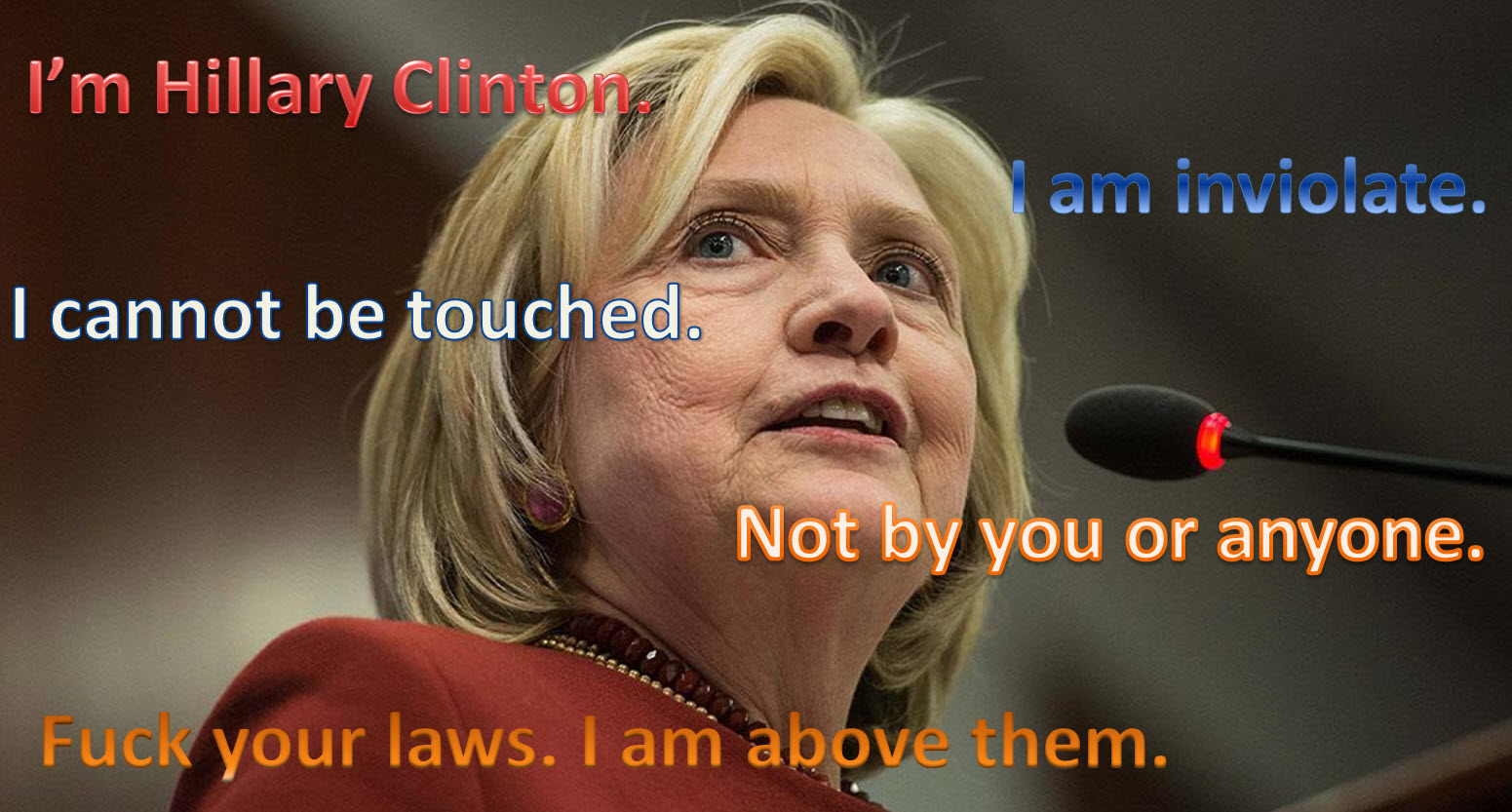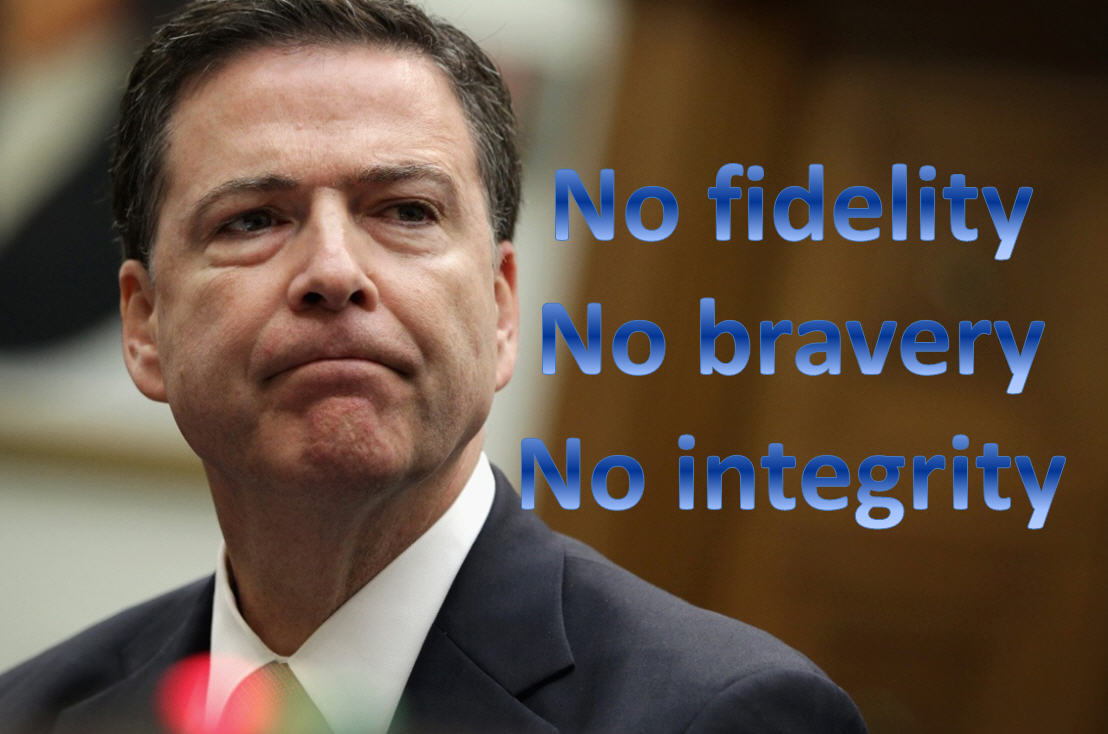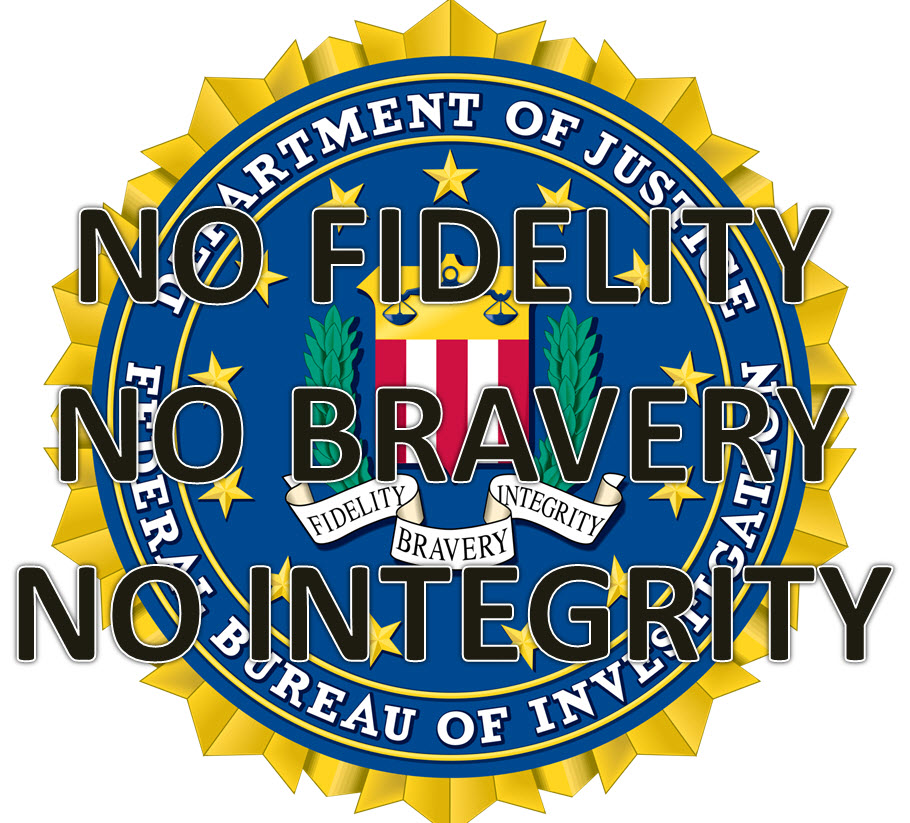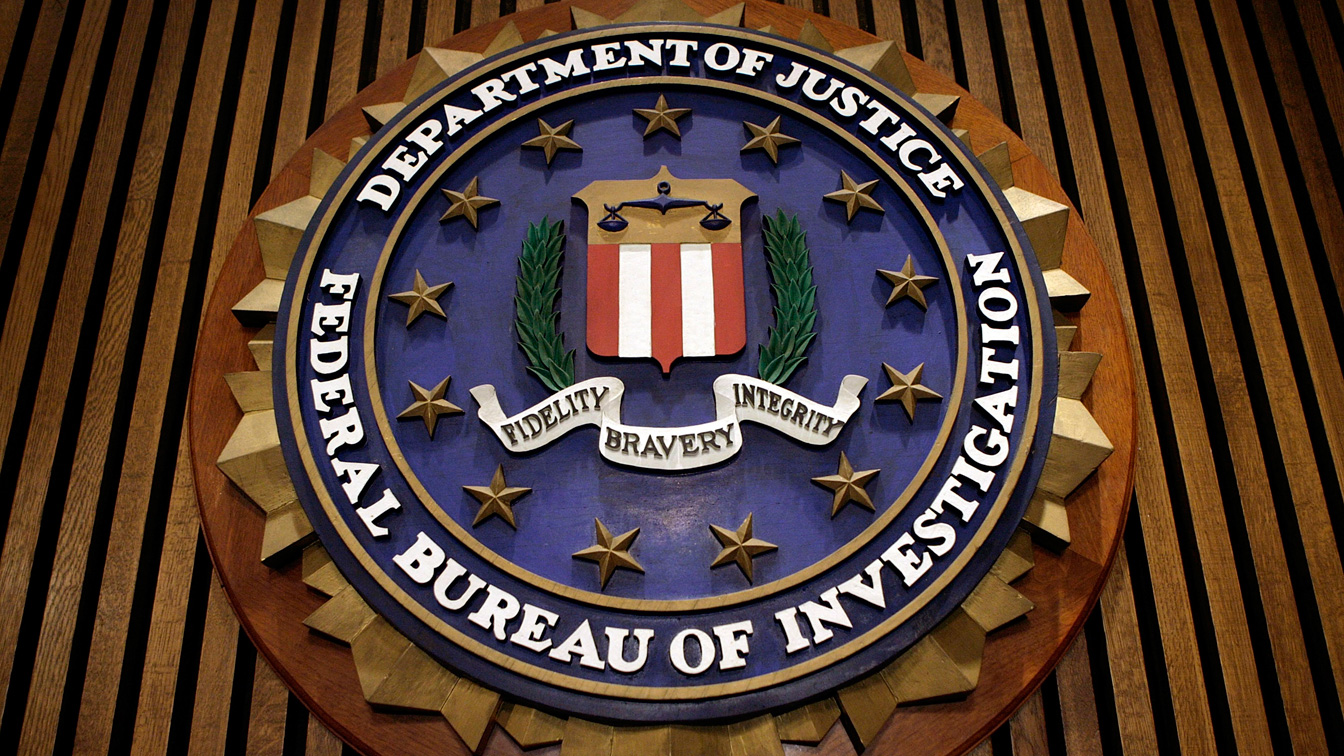 And that is such a depressing statement to make, because I used to work for the FBI.
And that is such a depressing statement to make, because I used to work for the FBI.
First, the article from the WashingtonTimes.com:
FBI says lack of public interest in Hillary emails justifies withholding documents
by Stephen Dinan
Hillary Clinton’s case isn’t interesting enough to the public to justify releasing the FBI’s files on her, the bureau said this week in rejecting an open-records request by a lawyer seeking to have the former secretary of state punished for perjury.
Ty Clevenger has been trying to get Mrs. Clinton and her personal attorneys disbarred for their handling of her official emails during her time as secretary of state. He’s met with resistance among lawyers, and now his request for information from the FBI’s files has been shot down.
“Shot down” by whom? Right. The Federal Bureau of Investigation. Who should be investigating an issue such as this.
It appears I’m going to have to change my classic logo about the FBI. . .
From this very specific graphic . . .
 To this very generic graphic. And it pains me. It pains me terribly to realize the biased and politicized depths to which the FBI has sunk.
To this very generic graphic. And it pains me. It pains me terribly to realize the biased and politicized depths to which the FBI has sunk.
 I shake my head in sadness, I well and truly do. This is so incredibly disspiriting for me and for law enforcement everywhere. In retrospect, truly, what does your NA experience really mean?
I shake my head in sadness, I well and truly do. This is so incredibly disspiriting for me and for law enforcement everywhere. In retrospect, truly, what does your NA experience really mean?
“You have not sufficiently demonstrated that the public’s interest in disclosure outweighs personal privacy interests of the subject,” FBI records management section chief David M. Hardy told Mr. Clevenger in a letter Monday.
“It is incumbent upon the requester to provide documentation regarding the public’s interest in the operations and activities of the government before records can be processed pursuant to the FOIA,” Mr. Hardy wrote.
Oh. Yes. Because there isn’t more of a clangor and clamoring — by the “public” — that is sufficient justification to withhold facts and evidence.
Mrs. Clinton, was the 2016 Democratic presidential nominee, former chief diplomat, former U.S. senator, and former first lady of both the U.S. and Arkansas.
Her use of a secret email account to conduct government business while leading the State Department was front-page news for much of 2015 and 2016, and was so striking that the then-FBI director broke with procedure and made both a public statement and appearances before Congress to talk about the bureau’s probe.
It was, oddly enough, under her watch in which four Americans lost their lives. That no longer “counts.” To mention that now is nothing but “bias” and “prejudice.”
In the end, the FBI didn’t recommend charges against Mrs. Clinton, concluding that while she risked national security, she was too technologically inept to know the dangers she was running, so no case could be made against her.
The FBI says it will only release records from its files if a subject consents, is dead, or is of such public interest that it overrides privacy concerns.
Protecting those elements who need to be protected by the Left for the Left, so that people continue to vote for the Left. That is the basis for the FBI’s politicized decision.
Mr. Clevenger said he thought it would have been clear why Mrs. Clinton’s case was of public interest, but he sent documentation anyway, pointing to a request by members of Congress for an investigation into whether Mrs. Clinton perjured herself in testimony to Capitol Hill.
“I’m just stunned. This is exactly what I would have expected had Mrs. Clinton won the election, but she didn’t.
It looks like the Obama administration is still running the FBI,” Mr. Clevenger told The Washington Times
“How can a story receive national news coverage and not be a matter of public interest? If this is the new standard, then there’s no such thing as a public interest exception,” he said.
Correct. This is a biased decision expected from, say, a Hillary Clinton administration.
This is another in a continuing series of revelations indicating that, clearly, the Deep State is alive and well, influencing every level and agency in DC.
You were told at some point, when learning American history, that there are three separate and distinct branches of government as created and delineated by our founding fathers in their brilliance.
I would not just submit but insist there are four branches of government, as indicated.
- Legislative;
- Judicial;
- Executive;
- Bureaucratic.
This newest branch, the likes of which we’re now realizing, is frequently every bit as powerful and occasionally more so than the other three. This is one obvious instance. Hardy is a bureaucrat. A paper shuffler. He was not elected. Therefore he gets to stymie the investigation and hold back the information.
Just one basic question: since when is whatever amount of interest shown by the public a deciding factor in the revelation of documents which are not in and of themselves classified and therefore subject to nondisclosure?
Is the FBI saying that, had their been a greater rumbling by “the public” that the agency would have looked more favorably upon Clevenger’s request? Or is the FBI saying, via Hardy, that he is solely making the determination — and he is — the information is not in the public’s interest?
Good to know. A perception of “public interest” is now a lawful criteria with which to determine the relevancy of a FOIA request. I suppose Hardy will expect future requests to have ginned-up public support behind them prior to consideration.
This is the same FBI where former director James Comey in 2016 laid out a perfect case against Hillary Clinton then decided he was going to not recommend an investigation, taking this decision out of the hands of then-AG Loretta Lynch.
This is the same FBI where former director James Comey decided there was no conflict of interest with his second-in-command.
Virginia Gov. Terry McAuliffe, a longtime Clinton confidant, helped steer $675,000 to the election campaign of the wife of an FBI official who went on to lead the probe into Hillary Clinton’s use of a private email system, according to a report.
The political action committee of McAuliffe, the Clinton loyalist, gave $467,500 to the state Senate campaign of the wife of Andrew McCabe, who is now deputy director of the FBI, according to the Wall Street Journal.
The report states Jill McCabe received an additional $207,788 from the Virginia Democratic Party, which is heavily influenced by McAuliffe.
This is the same FBI where former director James Comey decided to purposely leak classified information to a third party in order to prompt a special counsel to investigate President Trump regarding Russia, et al.
We already know the FBI doesn’t obey various laws itself.
Jason Chaffetz reveals: FBI doesn’t follow the law
And, further, it doesn’t wish to be accountable.
First, the background information from FCW.com:
House seeks clarity on FBI facial recognition database
by Matt Leonard
The FBI has expanded its access to photo databases and facial recognition technology to support its investigations. Lawmakers, however, have voiced a deep mistrust in the bureau’s ability to protect those images of millions of American citizens and properly follow regulations relating to transparency.
Kimberly Del Greco, the deputy assistant director of the FBI’s Criminal Justice Information Services Division, faced tough questioning from both sides of the aisle at a March 22 hearing of the House Committee on Oversight and Government Reform.
“So here’s the problem,” said Rep. Jason Chaffetz (R-Utah), the committee chairman. “You’re required by law to put out a privacy statement and you didn’t and now we’re supposed to trust you with hundreds of millions of people’s faces.”
The FBI’s NGI-IPS allows law enforcement agencies to search a database of over 30 million photos to support criminal investigations. The bureau can also access an internal unit called Facial Analysis, Comparison and Evaluation, which can tap other federal photo repositories and databases in 16 states that can include driver’s license photos. Through these databases, the FBI has access to more than 411 million photos of Americans, many of whom have never been convicted of a crime.
The FBI obeys all laws. And no, the FBI isn’t politicized at all.
Perish the thought.
Except that confidence in the FBI is itself perishing.
BZ



 And, further, it doesn’t wish to be accountable.
And, further, it doesn’t wish to be accountable. visual information, the license plates of vehicles, in order to determine their status, either stolen or wanted due to criminal activity. In essence, there is yet no limitation on what can or must be done with this information. It can and is shared with abandon between agencies — not just law enforcement — and the technology has the ability to track vehicles and place them at certain locations at precise times. Though you, the driver, have committed no crime.
visual information, the license plates of vehicles, in order to determine their status, either stolen or wanted due to criminal activity. In essence, there is yet no limitation on what can or must be done with this information. It can and is shared with abandon between agencies — not just law enforcement — and the technology has the ability to track vehicles and place them at certain locations at precise times. Though you, the driver, have committed no crime.